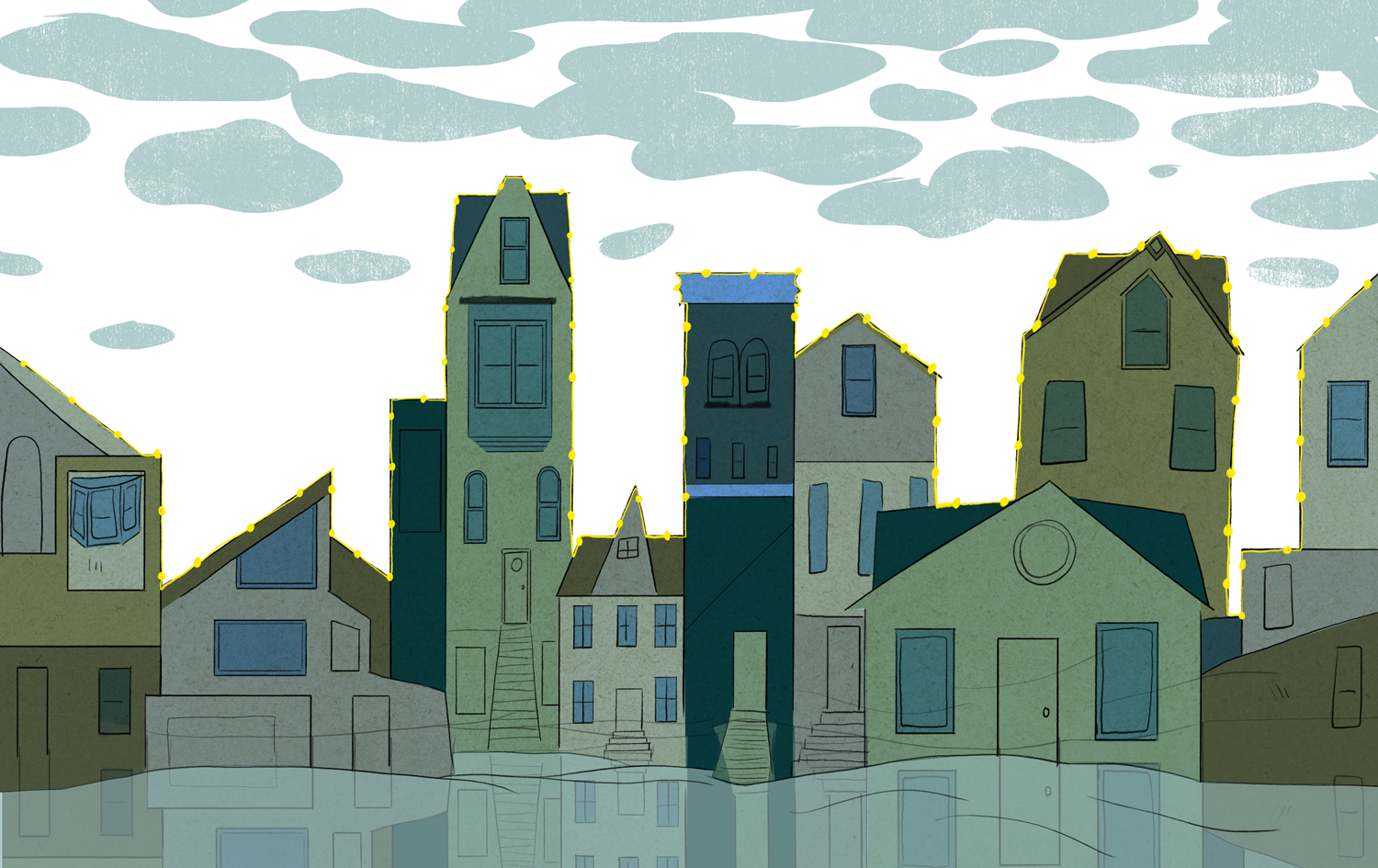Imagine internet so fast you could download nine hours of audio in less than a second, or a two-hour movie in less than 10. That fantasy is about to become a reality in downtown Eugene.
The city has begun a project to connect up to 120 downtown buildings with fiber-optic internet services, meaning businesses will soon have access to much faster internet at much lower prices. The glass cables used in fiber enable significantly faster data transfer than their copper counterparts, including download speeds of one gigabit — or 125 megabytes — per second for around $100 a month.
The city hopes that lightning-fast internet speed will help accelerate high-tech business development by encouraging recent college graduates and start-ups to do business in Eugene.
And while the City Council’s decision to allocate $3 million of the Downtown Urban Renewal Plan budget for fiber internet downtown drew scrutiny for diverting tax revenue away from schools and county services, the technology could have far-reaching impacts on sustainability.
Studies show that connecting a city to fiber can significantly reduce its greenhouse gas emissions, which have skyrocketed across the globe since the industrial revolution, increasing heat in the atmosphere and causing global climate change. If the city decides to expand the downtown fiber project to the city’s residential neighborhoods — a prospect some experts say is not far down the road — fiber internet has the potential to drastically shrink Eugene’s carbon footprint.
Fiber transmits data more efficiently than older technologies and reduces the need for raw materials and other resources, according to several studies, including a 2015 study by the Environmental News Network.
The laser-generated light signals sent over fiber carry far more information than the electrical signals sent over copper and coaxial cables, requiring dozens of times less energy to operate and degrading far slower, leading to a much longer lifespan. Fiber also better accommodates increasing customer demand, able to withstand increased workloads without installing additional cables.
Local experts say introducing fiber to downtown Eugene will have far-reaching effects directly in the community. Matt Sayre, a director at the Technology Association of Oregon (TAO), says Eugene has already seen and will continue to see more telecommuting, meaning people are able to work remotely instead of driving to the office and thereby releasing carbon emissions into the atmosphere.
“You can live in a great place like Eugene, and you can work for a company like Microsoft in Seattle, and many people do,” Sayre says.
Sayre also foresees a spike in the practice of telemedicine — the remote diagnosis and treatment of patients — and major improvements in the ability to track environmental indicators, such as monitoring air or water pollution.
EWEB Commissioner John Simpson says fiber downtown will attract many green businesses to the area, such as engineering design firms, data aggregators and software development firms that have the need for high bandwidth. Videoconferencing, he says, will be “seamless,” so the need to commute by plane or car will drastically decrease.
“We’re not talking Skype, which freezes up six times a meeting, and you have to say, ‘Would you say that again?’” Simpson says. “It’s not going to be like that. It’s going to be 100 percent seamless.”
Anne Fifield, an economic development planner at the city of Eugene, says that because the downtown fiber project will also connect residential buildings, it will limit sprawling development by creating opportunities to live and work within walking distance of each other, reducing greenhouse gas emissions.
“This is infrastructure that will enhance downtown’s attractiveness,” she says. “More things will be built, and more people will want to live downtown, and those people will have very low greenhouse gas emissions.”
Although the city does not have the infrastructure underground or money to expand the fiber network beyond downtown, it does already have hundreds of miles of fiber cable running alongside above-ground electrical wires that connect schools and public buildings.
Sayre says some internet service providers are already examining ways to use that infrastructure as a jumping-off point to connect Eugene’s residential neighborhoods.
“I think in the next year we’ll see examples of $59 gigabit connections in both Eugene and Springfield in residential situations” he says.
